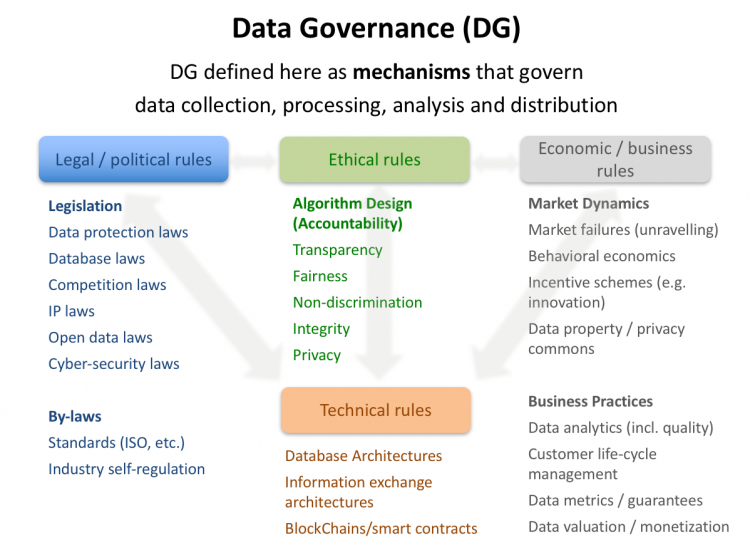Data Governance – A New Approach to Data Policy
Impulse
When it comes to using data analytics to meet societal challenges, e.g. in the mobility, environmental or energy sector, Germany has been a latecomer rather than a pioneer. With digital transformation massive amounts of data are produced every day, which leads to disorientation of many actors with respect to how to use those data. However, smart data analytics can contribute significantly to the solution of societal problems. For instance, smart traffic management based on anonymized data could help to reduce emissions in Germany. Such societal benefits should, however, be realized while simultaneously protecting privacy. This poses a challenge to the traditional data protection regime.
We need a comprehensive understanding of how to govern relevant data flows at a societal level. This is what we call “Data Governance.” It is the task of politics to initiate all necessary measures at the beginning of the new legislative period.
Data Governance encompasses all frameworks, regulations and rules that determine data generation, storage and analysis including legal and administrative directives, voluntary codes of conduct, ethical codes and technical norms.
Mechanisms of Data Governance vary among sectors and market segments due to different practices in data generation and processing. Legal regulations like data protection and data base laws, intellectual property rights and cyber-security laws as well as competition laws are central components of Data Governance. Other important elements are the new open data law as well as long-established information access laws.
In the face of such a variety we need a superordinate conceptualization of how desirable societal handling of data could look like. In pursuance of innovative data policies we have to find suitable governance mechanisms and in order to develop such mechanisms we need to interlink the different areas displayed in the graphic in a more effective way:

First, it is important to determine all governance elements within the data ecosystem that are already in place. Then, interdependencies, synergies and possible conflicts have to be analyzed. Based on these findings innovations in data policies can be developed that will increase societal benefits, foster value-based technologies, keep markets open and secure our human rights in the digital space.
Finally, it should be our priority to make Data Governance Made in Germany a successful export model the domain of data politics. How to govern data is, per se, an international issue. Germany with its long-standing data protection tradition, its solid technical expertise and its political role in Europe and the world represents a reasonable starting point for the development of effective Data Governance that matters beyond borders.
Dr. Tobias Knobloch, Project Director Data Governance
Dr. Nicola Jentzsch, Project Director Data Governance